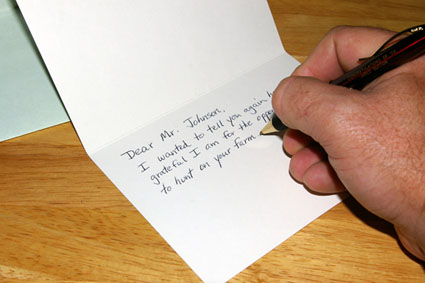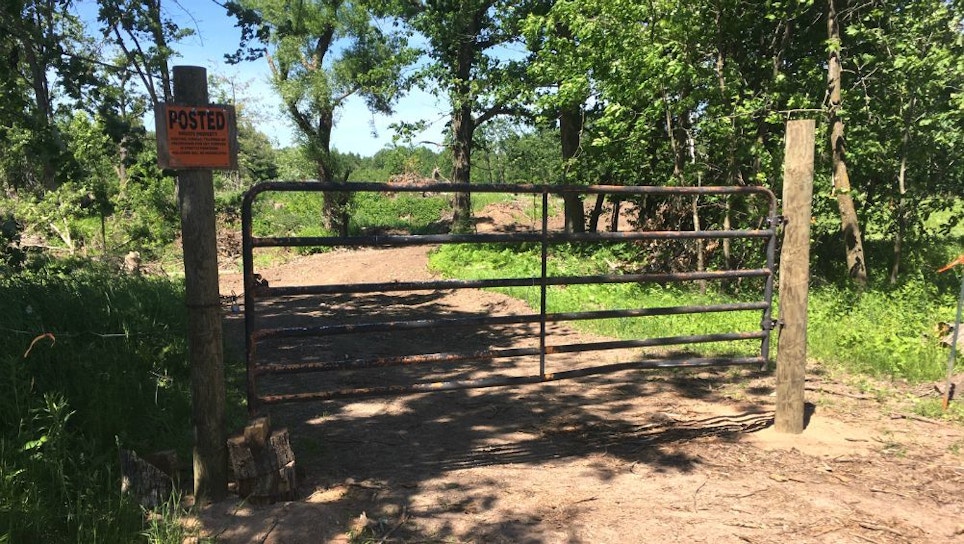About 60 percent (about 1.3 billion acres) of all land in the 48 contiguous states is privately owned. In some states, private ownership is closer to 90 percent.
It stands to reason that many of the best deer-hunting opportunities are on private land. As the limited acreage in public ownership becomes more crowded, many of us will seek ways to gain access to private hunting areas. Whether we succeed depends on our ability to befriend the landowner and gain his or her trust.
The First Step: Be a Friend
Knocking on a landowner’s door and asking permission to hunt each time you visit is common courtesy. But what makes you different from other people asking the same favor? The answer might determine whether you’re granted access for hunting.
In my experience, you must show the property owner you’re a friend, and not just someone asking a favor, if you expect to obtain hunting permission. Too often, hunters show up with no previous introductions or at inopportune times. Worse yet, many don’t show up at all, choosing instead the impersonal phone call as a means for asking permission.
Put yourself in the landowner’s place. You’ve worked hard to manage wildlife on your property, investing thousands of dollars and hundreds of hours of time. Now, a stranger shows up, or calls, and asks permission to hunt deer on your land. You’ve never met the person before, don’t know anything about him, and here he is wanting to walk around on your property carrying a gun. What would you do?
Now, imagine another scenario.
You’re the landowner, and you’re on the back forty one morning stacking brush you’ve cut to make cover for cottontails and quail. Your friend Tom drives up; a stranger is with him.
“John, I’d like you to meet Jerry,” your friend says. “We attend the same church, and Jerry told me he’s been looking for a place to deer hunt. I told him you have some good deer on your property, and if the two of you got acquainted, maybe you’d be willing to let him hunt on your place.”
Following introductions, Tom and Jerry help you with the brushpiles. You chat for several hours as you work, getting better acquainted with Jerry. At quitting time, Jerry asks if you and your wife might let him treat you to dinner at the local restaurant.
In this situation, don’t you imagine you’d be more inclined to grant hunting permission to Jerry than you would if he showed up out of the blue on your doorstep?
The true sportsman becomes a real friend to the landowner and not just a beggar hoping for a handout. In some cases, your contribution might be nothing more than a willingness to spend a little time visiting or an invitation to join you for a meal. In other instances, it may be something more concrete, like helping build a new fence or offering to pay for hunting privileges.
You won’t gain hunting permission every time you ask, even if you are a friend. Some people still worry about liability. Some reserve hunting privileges for family and friends. Some prefer not to allow hunting on their land at all.
 Always take time to send a thank-you note expressing your appreciation for hunting opportunities on private lands. |
Ethical outdoorsmen realize this may happen, and take it in stride, being polite and showing gratefulness for the landowner’s time. Leaving a good impression is important regardless of what happens.
Step Two: Show Your Appreciation
If you are given an opportunity to hunt on someone else’s property, show you’re appreciative of that gesture.
The first way to do that is showing respect for the landowner’s property. Always pick up spent shells and litter. Hunt only where the landowner wants you to, keeping safely away from his house, barns and livestock, and respecting his crops. Don’t stretch or break fences you cross. Latch gates securely. Follow all guidelines the property owner gives you.
As important as everything else is what you do after you hunt. Always stop back by and saying thanks. Offer to share meat from any deer you kill, and ask the owner if you could come back to help around the place. Let your good manners show.
Later, find ways to show the landowner you’re not just a hunting-season friend. Send a gift at Christmas and for birthdays. Write a letter now and then, or phone to say hello. Invite your host to eat at your home and meet your family. Ask them to a special event. Stay in touch year-round, and show you really are a friend.
Finally, send a thank-you note, and do so every time you visit. You’ll be surprised how much such a simple gesture means to people. And you’ll be pleased when you have a new friend who enjoys your visits as much as you.






